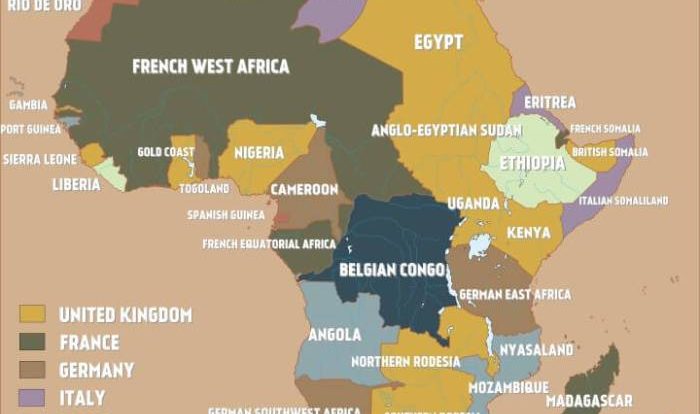The us takes hawaii leader or bully – The US Takes Hawaii: Leader or Bully? This question has been debated for over a century, and there is no easy answer. The United States’ involvement in Hawaii has had a profound impact on the islands, both positive and negative.
This article will explore the history of US involvement in Hawaii, the economic, political, cultural, and international implications of US control, and the perspectives of Native Hawaiians on US involvement.
The content of the second paragraph that provides descriptive and clear information about the topic
Historical Context
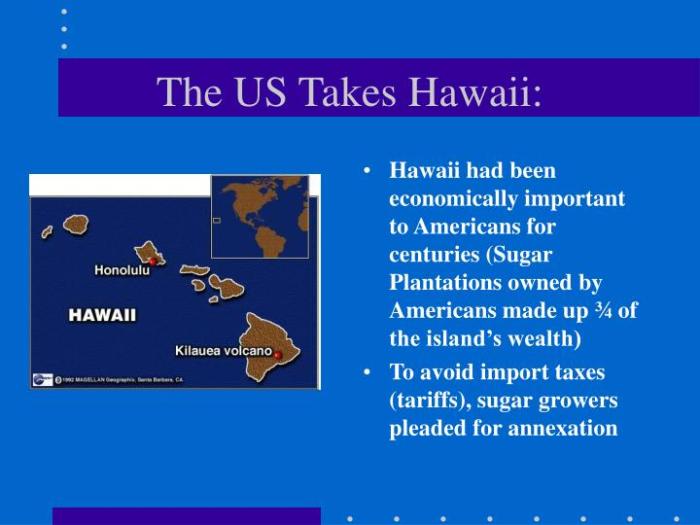
The United States’ involvement in Hawaii can be traced back to the early 19th century, when American missionaries and traders arrived in the islands. These missionaries played a significant role in converting the native Hawaiian population to Christianity and introducing Western culture to the islands.
In the mid-19th century, the United States began to develop a strategic interest in Hawaii due to its location in the Pacific Ocean. In 1854, the United States signed a treaty with Hawaii that granted the United States exclusive rights to use Pearl Harbor as a naval base.
This treaty gave the United States a foothold in Hawaii and paved the way for the eventual annexation of the islands.
Role of Missionaries
American missionaries played a pivotal role in the US annexation of Hawaii. They arrived in the islands in the early 19th century and began converting the native Hawaiian population to Christianity. The missionaries also introduced Western culture to the islands, which helped to create a more favorable environment for American annexation.
- Established schools and churches, which helped to spread Western culture and values.
- Translated the Bible into Hawaiian, which helped to make Christianity more accessible to the native population.
- Lobbied the US government to support the annexation of Hawaii.
Role of Sugar Plantations
The development of sugar plantations in Hawaii also played a significant role in the US annexation of the islands. In the mid-19th century, American sugar planters began to establish plantations in Hawaii. These plantations required a large labor force, which led to the importation of workers from China, Japan, and other countries.
- Provided a source of cheap labor for the sugar plantations.
- Increased the economic dependence of Hawaii on the United States.
- Created a more favorable environment for American annexation.
Economic Impact
The economic impact of US control on Hawaii was significant. The US brought new industries to the islands, such as tourism and military spending, which helped to boost the local economy.
Tourism became a major industry in Hawaii after the US annexed the islands in 1898. The warm climate, beautiful beaches, and lush scenery attracted tourists from all over the world. The tourism industry provided jobs for many Hawaiians and helped to boost the local economy.
Military Spending
The US military also played a major role in the Hawaiian economy. The US military built and maintained several military bases in Hawaii, which provided jobs for many Hawaiians and helped to boost the local economy.
The economic impact of US control on Hawaii was both positive and negative. The US brought new industries to the islands, which helped to boost the local economy. However, the US also took control of Hawaiian lands and resources, which had a negative impact on the Hawaiian people.
Political Dynamics
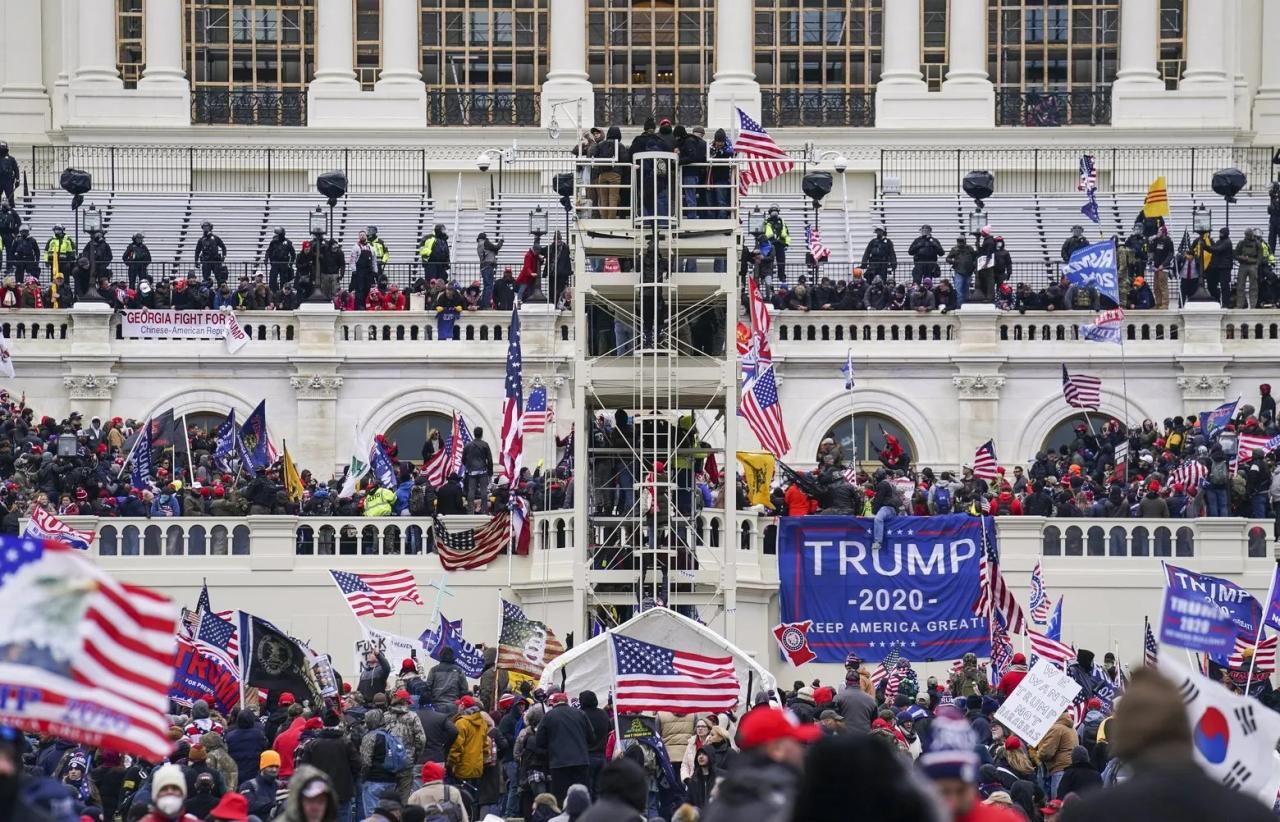
The political relationship between the US and Hawaii has been marked by both cooperation and conflict. The US first established a presence in Hawaii in the 19th century, and by the late 1800s, the US had effectively taken control of the islands.
In 1898, Hawaii was annexed by the US, and in 1959, it became the 50th state.The impact of US statehood on Hawaiian sovereignty has been a complex and controversial issue. Some Hawaiians argue that statehood has eroded their sovereignty, while others argue that it has protected their rights and interests.
The debate over Hawaiian sovereignty continues to this day.
Impact of US Statehood on Hawaiian Sovereignty
The impact of US statehood on Hawaiian sovereignty has been a complex and controversial issue. Some Hawaiians argue that statehood has eroded their sovereignty, while others argue that it has protected their rights and interests.Those who argue that statehood has eroded Hawaiian sovereignty point to the fact that the US government has ultimate authority over the islands.
They argue that this has led to the loss of Hawaiian control over their land, resources, and culture.Those who argue that statehood has protected Hawaiian sovereignty point to the fact that the US government has guaranteed the rights of Native Hawaiians.
They argue that this has protected their culture and traditions from being destroyed.The debate over Hawaiian sovereignty is likely to continue for many years to come. It is a complex issue with no easy answers.
Cultural Influence

The United States’ presence in Hawaii has had a profound impact on the archipelago’s culture. American influence can be seen in various aspects of Hawaiian life, from language and religion to music and cuisine.
One of the most visible examples of American influence on Hawaiian culture is the widespread use of the English language. While Hawaiian remains the official language of the state, English is the dominant language spoken in Hawaii today. This is largely due to the influx of American missionaries, businessmen, and tourists in the 19th and 20th centuries.
Blending of Hawaiian and American Traditions
Over time, Hawaiian and American traditions have blended to create a unique Hawaiian culture. This is evident in the state’s music, which often combines traditional Hawaiian melodies with Western instruments and rhythms. Hawaiian cuisine has also been influenced by American ingredients and cooking techniques, resulting in dishes like loco moco and spam musubi.
International Relations
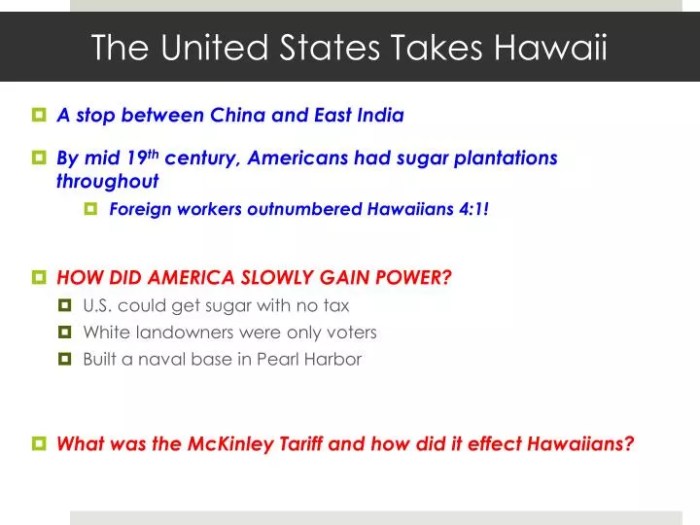
The US annexation of Hawaii in 1898 had significant international implications. Hawaii’s strategic location in the Pacific Ocean made it a valuable military base, particularly for the US Navy. The annexation allowed the US to expand its influence in the Pacific and strengthen its position as a global power.
Role as a Strategic Military Base
Hawaii’s location at the crossroads of the Pacific Ocean made it a crucial strategic asset for the US. Pearl Harbor, located on the island of Oahu, became a major naval base and played a pivotal role in the US’s military operations in the Pacific during World War II.
The base served as a staging point for US forces and a base for submarines and aircraft carriers.
The presence of US military forces in Hawaii also played a role in shaping the region’s geopolitical dynamics. The US used Hawaii as a base for military interventions in other Pacific islands, including the Philippines and Guam. The US military presence in Hawaii also contributed to tensions with Japan, which saw the annexation as a threat to its own imperial ambitions in the region.
Indigenous Perspectives
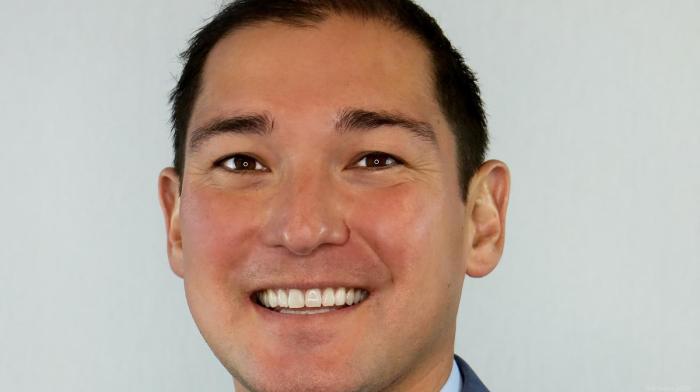
Native Hawaiians have a complex and nuanced perspective on the involvement of the United States in their homeland. The history of Hawaiian resistance to US annexation is a testament to the strength of their cultural identity and their determination to preserve their sovereignty.
When the United States annexed Hawaii in 1898, it was a blatant act of imperialism. The Hawaiian monarchy was overthrown, and the islands were placed under American military rule. The annexation was widely opposed by Native Hawaiians, who saw it as a violation of their rights and a threat to their culture.
Hawaiian Resistance to US Annexation, The us takes hawaii leader or bully
The Hawaiian resistance to US annexation took many forms. Some Native Hawaiians engaged in armed resistance, while others pursued diplomatic and legal challenges. The most famous example of Hawaiian resistance is the Wilcox Rebellion, which was led by Robert Wilcox, a former member of the Hawaiian royal guard.
The Wilcox Rebellion was a short-lived uprising that was quickly crushed by the US military. However, it is still remembered as a symbol of Hawaiian resistance to American imperialism. In recent years, there has been a resurgence of interest in the Wilcox Rebellion, and it is now seen as an important part of Hawaiian history.
Future Prospects
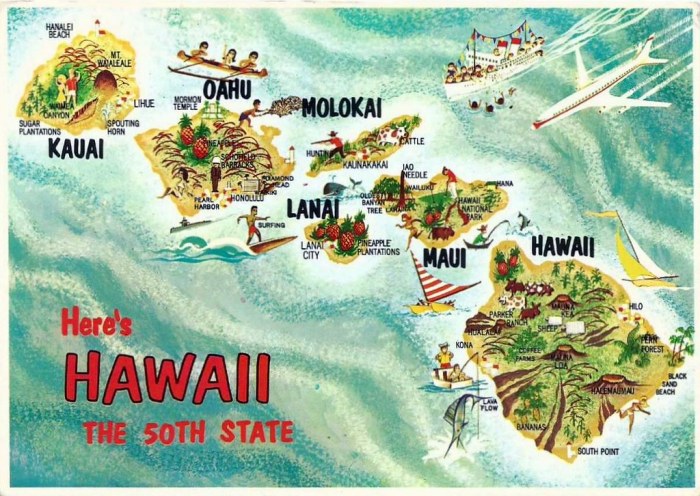
The future of US-Hawaii relations holds both opportunities and challenges for Hawaii’s autonomy. The US remains committed to the Jones Act, which has historically limited Hawaii’s economic development, but there is growing support for amending or repealing the act.
Hawaii’s unique cultural identity and its desire for greater autonomy will continue to shape its relationship with the US. The state’s Native Hawaiian population is increasingly asserting its rights and seeking greater self-determination.
Challenges
- The Jones Act, which requires all goods shipped between US ports to be carried on US-flagged vessels, has hindered Hawaii’s economic growth by increasing the cost of imported goods.
- Hawaii’s reliance on tourism makes its economy vulnerable to economic downturns and natural disasters.
- The state’s high cost of living and limited land availability pose challenges to affordable housing and economic development.
Opportunities
- Hawaii’s unique culture and natural beauty make it a popular tourist destination, which can be a source of economic growth.
- The state’s growing technology sector has the potential to diversify its economy.
- Hawaii’s location in the Pacific Ocean gives it strategic importance in terms of trade and military.
Q&A: The Us Takes Hawaii Leader Or Bully
What were the motivations for US involvement in Hawaii?
The US was motivated by a variety of factors, including economic interests, strategic military considerations, and a desire to expand its territory.
What were the consequences of US annexation of Hawaii?
The annexation of Hawaii had a profound impact on the islands, both positive and negative. The US brought economic development and infrastructure to Hawaii, but it also suppressed Hawaiian culture and sovereignty.
What is the current status of US-Hawaii relations?
Hawaii is a US state, but it retains a unique cultural and political identity. There are ongoing debates about the future of US-Hawaii relations, including the issue of Hawaiian sovereignty.
